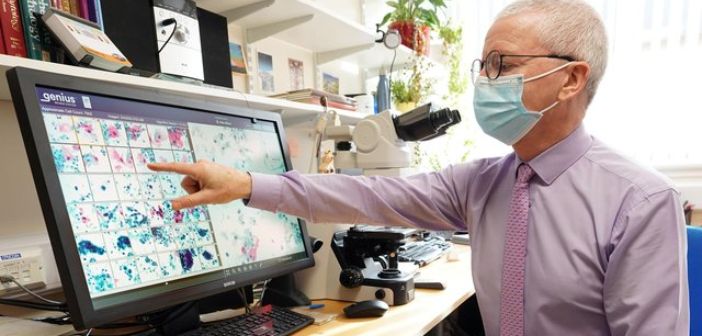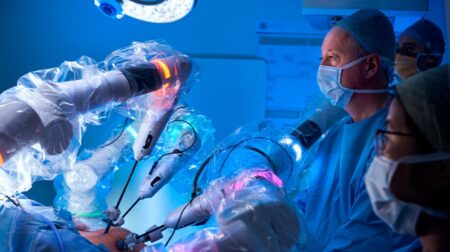University Hospital Monklands, Airdrie, is piloting AI and advanced imaging technology in a bid to improve early diagnosis of cervical cancer.
The NHS Lanarkshire facility is said to be the first in the UK to trial the Genius Digital Diagnostics System, from women’s health company Hologic.
This digital cytology system creates images of cervical smear slides from samples that have tested positive for Human Papilloma Virus. An advanced AI algorithm then reviews slides and provides the screener with an image gallery of the most diagnostically relevant cells. This could help scientists quickly identify and accurately diagnose abnormalities.
Project lead, Allan Wilson, consultant biomedical scientist at NHS Lanarkshire, said: “Looking for abnormal cells is like trying to find a needle in a haystack because in some cases there are only around 50 abnormal cervical cells in a sample that may contain 15,000 normal cells. This pilot with Hologic has shown how digital cytology can revolutionise our analysis process in our cervical screening programme.”
Preliminary results from the trial have been described by Wilson as promising, as the team at University Hospital Monklands has increased capacity by around 25% in the slide assessment and improved analysis turnaround times.
This is turn enables screeners to dedicate more time for training and dealing with complex cases. The team are now undertaking a retrospective study with the digital cytology system to test its performance against previous known results.
“This will then provide the clinical data to make a recommendation on the use of digital cytology in the cervical screening programme in Scotland,” Wilson added.
“Through AI and digital diagnostics, we have the potential to improve outcomes for women not only in Scotland, but around the world.”








